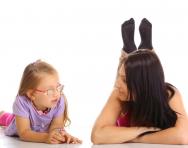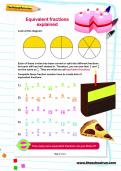Speaking and listening skills for SEN kids: parents' tips

Speaking and listening skills are crucial to all children’s learning and development. Being able to communicate effectively is important, not only in the classroom, but also in forming relationships, learning how to play and in social interactions.
Children with special educational needs may struggle with communication; they may have fewer opportunities to interact with others and practise their skills.


Start a unique learning programme!
- Weekly programme for each school year
- Worksheets sent direct to your inbox
- Keeps your child's learning on track
Here are some practical communication tips which have been suggested to Scope by parents and professionals who work with children who have special educational needs.
- Make it fun
Obvious, but true. Children are far more likely to be interested in an interaction if it’s fun. There’s no better motivation for someone to listen and communicate.
- Try sabotage
Often we do so much for our children, they don’t need to communicate. That’s where organised sabotage helps! Put toys or important objects in a place where your child needs to ask for them, or give them a meal with no cutlery. Find ways to manipulate situations to create the need for communication.
- Get on the same level
Playing and talking are easier if you’re sitting on the same level. If your child finds eye contact too invasive, try lying on a blanket on the floor together.
- Prepare an activity
Build play dates around fun, interesting activities all children will enjoy. Think creatively and prepare in adavance; you could try giving children a ball of pizza dough, for example, and have a pizza-making lunch. All children tend to love all special needs "kit", sensory features, trampolines and so on, so let them get stuck in!
- Learn keywords
If your child has a communication impairment, ask the teacher for a list of new keywords that will be introduced into the classroom for the next term. Practise them together so your child has a head start. And why not burst into song? Songs and nursery rhymes are a great, fun way to learn keywords.
- Avoid questions
Children learn lots of words from comments like, “Look, the dog is playing with a ball; it’s like your ball!” Their vocabulary isn't expanded in the same way by too many questions or demands like “What’s the dog playing with?” or “Who is playing with the ball?”
- Try a simple motivation technique
The key to communication and learning is motivation. Think about what your child enjoys doing and plan conversations around it. If they have a special interest, use that to encourage communication.
- Play Articulate
Articulate is a great game to help improve vocabulary. Put some words on to cards and place them on the table. Then pick up a card and describe the word without saying it. The other player must guess the word correctly.
Parents' SEN communication tips
Give choices
‘We find that giving Lucy choices encourages her to talk more.’
Create conversation
‘I use a white board to draw a picture of something we’ve done or something interesting that’s happened each day. Whenever we leave the house I show my son the picture, and try to get him to tell people about it during the day. Or, if people come to the house, I ask him to show them the board and explain what happened. He loves doing this.’
Emphasise keywords
‘Izzy doesn’t understand very much but she does understand keywords, so we isolate and emphasise these, for example "bath", "bus", "shops"'.
Ham it up
‘We find exaggerating our facial expressions and tone of voice really helps Tammy to understand us.’
Attention please!
‘To get Harry’s attention, we always call his name before we speak. This gives him a chance to notice us and then prepare himself to concentrate on what we are saying.’
Give your child a reason to talk
‘People need a reason to communicate and the opportunity to have a go. In the nicest possible way we asked Charlie’s carer to stop talking for Charlie all the time and also to stop anticipating her needs. Charlie needs to be given the chance to communicate herself.’
Keep talking
‘We say out loud the words Bev would be saying to us, so she can learn what she would like to say, for example, “Want more?” or “It’s broken!”’
Give prompts
‘I put objects in my son’s pockets in the morning when he is going to nursery, so he will find them and tell someone about them. For example, we went to the safari park recently and had a leftover token which had an animal’s face on it. He found the token later and was able to relay a bit of information to his nursery teacher about the day before.’
Be clear
‘Our speech and language therapist taught us to give clear instructions (maximum of two information-carrying words) and use objects, symbols, signs or pictures to support words’.
Figures of speech
'My daughter has autism and often struggles socially because she doesn't understand metaphors and figures of speech, such as: 'Every cloud has a silver lining.' She gets stuck on the meaning and thinks, ‘What cloud?' 'How can a cloud have a silver lining?' etc for the next hour, missing the rest of the conversation. We have started writing down these sayings as they arise and have compiled a dictionary of their meanings. By looking at them regularly, my daughter has now begun to use some of them herself.
Colour their world
'To teach Guy his colours I cut out his favourite Thomas the Tank characters and glued them to plain card. He found it much easier to identify the colours of the characters that he was already familiar with. When we moved on to asking the colour of other objects, if he couldn't name the colour of the sky, a prompt of "What colour is Thomas?" usually got results.
Look at me
‘When we are talking about an object, I hold it up close to my eyes so that Aaron learns to look at me when we are talking.’
Be active
‘Acting out, using props and ‘commentating’ on an activity with enthusiasm is far more likely to engage children. We would get a ball and pretend to kick it while trying to get our son to say the word ball. It was always far more effective than showing him a picture and urging him to repeat the word’.
Scope offers information, advice and support about disability. Scope’s online community offers parents an online space to share suggestions and ideas on all aspects of supporting children with special educational needs.

Give your child a headstart
- FREE articles & expert information
- FREE resources & activities
- FREE homework help








